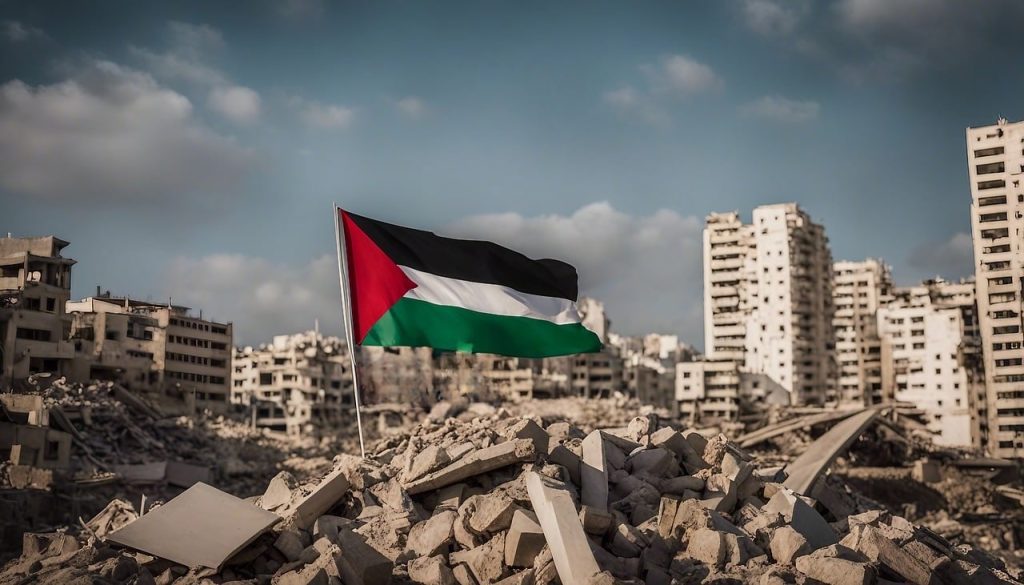Recognize a Palestinian State
Spain, Ireland, and Norway have said they will accept Palestine as a state, a significant diplomatic change. This move isn’t just a show of support; it has profound historical and strategic effects that could change the Israeli-Palestinian conflict and how countries negotiate. The world is paying close attention as three European countries take this stand and consider what it means.
Suppose you are interested in global politics, human rights, or the Middle East. In that case, you need to look into this decision’s historical background, the different points of view in Europe, and how it might affect the long-running conflict to fully understand its importance.
Table of Contents
A Brief Look at the Past
The Start of a Battle
The war between Israel and the Palestinians has its roots in the middle of the 20th century. The UN Partition Plan of 1947 wanted to split Palestine into two different states, one for Jews and one for Arabs. This idea led to the creation of the state of Israel in 1948, which forced hundreds of thousands of Palestinians to leave their homes. The Palestinians call this event the Nakba, which means “catastrophe.”
After the Six-Day War and More
When the Six-Day War broke out in 1967, things got much worse. After winning this short but essential war, Israel took over the West Bank, the Gaza Strip, and East Jerusalem, all of which the Palestinians want to be part of their future state. The rule has caused a lot of trouble and made it hard to find peace.
The Accords of Oslo
In the 1990s, the Oslo Accords gave people hope that things could be fixed. It was decided upon by Israel and the Palestine Liberation Organization (PLO) that Palestinians in some parts of the West Bank and Gaza would have temporary self-government. People thought these agreements were the first step toward a complete peace deal and a two-state settlement.
Peace Efforts Still Going On
Peace talks have been tried many times, but a long-term answer has not been found. There have been many times when the world community has had different ideas about how to solve the conflict and how much support there should be for a Palestinian state.
What Recognition Means: A Strategic and Symbolic Move
Spain, Ireland, and Norway’s choice to recognize Palestine is both a sign and a move for the future. It’s a symbolic statement that the Palestinians have the right to become a state and decide their future. From a political point of view, it puts more pressure on Israel and helps the Palestinian leadership’s efforts to gain recognition around the world.
Europe’s Different Points of View
Europe is still split on whether to recognize the Palestinians. Some countries, like Sweden, have already accepted Palestine. Other countries, like Germany and the UK, which are both very important, have yet to. Different points of view in Europe are caused by larger global issues and different ideas about what would most help the peace process.
Possible Impacts on the Conflict Between Israel and Palestine
If Spain, Ireland, and Norway recognize the Palestinian state, it could bring the Israeli-Palestinian issue back into the public eye. It could also lead other countries to do the same, putting more international pressure on Israel to start real talks. On the other hand, Israel might react negatively because it sees unilateral acceptance as harmful to direct negotiations.
What it means for international diplomacy
This move also affects relations between countries. The international community gets a message that things can’t stay the same and that new efforts are needed to make peace fair and lasting. It might change how other countries, like the US and the UN, handle international issues, which could completely change the political scene.
How to Get a Two-State Solution: The Role of State Recognition
A two-state solution, in which Israel and Palestine live together peacefully as two independent states, depends on both countries recognizing each other as states. By recognizing Palestine, Spain, Ireland, and Norway, it is clear that recognizing them as states is vital to any peace deal that will work.


What key stakeholders had to say
How Israel Feels
Israel is likely to be worried about this event. It has long been said that the only way to become a state is through direct talks rather than taking action on its own. Israeli officials may see this recognition as a threat to their negotiating stance, making the peace process more difficult.
What the Palestinians Say
For Palestinians, this recognition is a good sign that their hopes for becoming a state are being heard. It boosts their morale and makes them stronger in foreign forums. The leaders of the Palestinian people may use this momentum to get more backing from around the world.
Effects on the World
How other countries respond will be different. Some may be moved to accept Palestine, while others may warn against actions seen as going around the negotiation process. The following steps in the war between Israel and the Palestinians will depend a lot on how the rest of the world reacts.
conclusion
Spain, Ireland, and Norway must decide to recognize Palestine. This is a symbolic recognition of the Palestinian states, a diplomatic move with strategic value, and it could lead to new peace efforts. As people worldwide watch, this recognition will help us end one of the most challenging wars of our time in a fair and lasting way.
For people who care deeply about world politics, human rights, and the Middle East, these events are powerful reminders of the importance of international recognition and the length of the search for peace and justice.


Amjad Mustafa, the owner and author of Keen2Know, is a highly qualified individual with strong experience in technical engineering. He is an experienced professional with a variety of business, technology, and car knowledge. His academic background prepared him for a diverse career and established him as a prominent figure at the intersection of these rapidly evolving industries.



